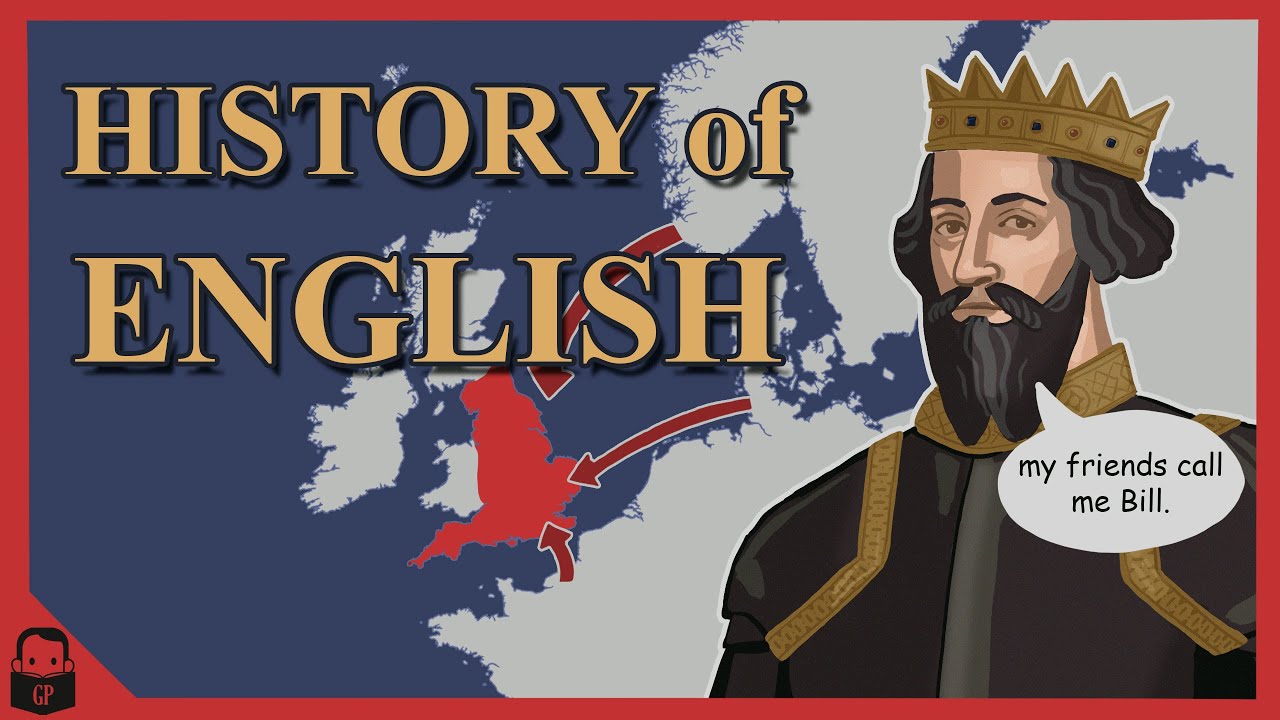The struggle for English
Summary
TLDRProfessor Andrew Ray Pena's script explores the evolution of the English language, from its roots in Old English to the impact of the Norman invasion on its development. It discusses the influence of Old Norse and French on English vocabulary and pronunciation, the Great Vowel Shift, and the fascinating linguistic shifts that have occurred over time. The script also touches on the broader implications of language change and borrowing, encouraging an appreciation for the richness of linguistic diversity.
Takeaways
- 📜 The development of modern English began with the migration of the Anglo-Saxons to Britain in the 5th century A.D., bringing their language and culture with them.
- 🇬🇧 Old English was a Germanic language, closely related to other northern European languages, and was initially written using runes before transitioning to the Latin script.
- 📝 Old English had complex plural forms and irregularities, which were later simplified, especially by the influence of the Vikings who added 's' to form plurals.
- 🏰 The Norman Conquest in 1066 brought significant changes to the English language, with French becoming the language of the high society and influencing English vocabulary and pronunciation.
- 🌐 Middle English emerged as a transitional language between Old and Modern English, lasting from the 12th to the 15th century, and saw the loss of case markings and changes in word order.
- 🗽 The Great Vowel Shift was a major phonetic change in English that affected the pronunciation of long vowels, leading to the differentiation of word pairs like 'crime' and 'criminal'.
- 📚 English has borrowed extensively from other languages, with 99% of its words coming from Latin, French, Greek, and other sources, reflecting its dynamic and evolving nature.
- 🔠 The pronunciation and spelling of English words have changed over time, influenced by various factors including the French language and the need for standardized written forms.
- 📖 The evolution of English has seen shifts in word meanings, with some words broadening in scope and others narrowing, reflecting changes in society and culture.
- 🌟 The story of English is a testament to the beauty and variety of language, encouraging speakers to embrace change and appreciate linguistic diversity.
- 📖 The script also provides a historical perspective on language development, showing how English has absorbed and integrated elements from various languages and cultures over centuries.
Q & A
What is the traditional starting point of the English language's history?
-The traditional starting point of the English language's history is the 5th century A.D., specifically in 449 A.D., when the Anglo-Saxon peoples migrated to Britain.
Which groups of people migrated to Britain along with the Anglo-Saxons?
-Along with the Anglo-Saxons, the Jutes also migrated to Britain, but they settled only in limited areas of what is now Britain.
What was the origin of the Anglo-Saxons' language, Old English?
-Old English was a Germanic language, which came from the same ancestor language as other languages spoken in Germany and Northern Europe.
What writing system was originally used for Old English?
-Old English was originally written using runes, which were the letters of the Old English alphabet.
What significant change occurred in the English language due to the Viking invasions?
-The Viking invasions led to Old English borrowing words from Old Norse, and simplification of plural forms by adding 's' to words, which affected the language's vocabulary and grammar.
Why did King Alfred of England advocate for more literature to be written in English?
-King Alfred advocated for more literature to be written in English because there were only a few people who were willing or capable of doing so, and Latin was still the dominant language for academic discourse.
What major event in 1066 had a significant impact on the English language?
-The Norman Conquest of 1066, led by William of Normandy, had a significant impact on the English language by introducing French vocabulary and influencing its pronunciation and grammar.
How did the Norman influence change the status of English in Britain?
-The Norman influence elevated French to the language of high society, while English became the language of the ordinary, uneducated people.
What is the 'Great Vowel Shift' and how did it affect English pronunciation?
-The Great Vowel Shift was a major change in pronunciation that occurred between 1350 and 1700, affecting the way English words were pronounced, often changing the vowel sounds and creating distinctions between words that were previously pronounced similarly.
Why do we have different word pairs like 'crime' and 'criminal', 'divine' and 'divinity' in English?
-These different word pairs arose due to various historical linguistic changes, including the Great Vowel Shift and the Middle English vowel shortening, which altered pronunciation and led to distinct forms for words that were once pronounced the same.
How did the meanings of some English words change over time?
-The meanings of some English words changed over time through processes such as broadening, where a word's meaning expanded to cover more concepts, or narrowing, where a word's meaning became more specific.
Outlines

Cette section est réservée aux utilisateurs payants. Améliorez votre compte pour accéder à cette section.
Améliorer maintenantMindmap

Cette section est réservée aux utilisateurs payants. Améliorez votre compte pour accéder à cette section.
Améliorer maintenantKeywords

Cette section est réservée aux utilisateurs payants. Améliorez votre compte pour accéder à cette section.
Améliorer maintenantHighlights

Cette section est réservée aux utilisateurs payants. Améliorez votre compte pour accéder à cette section.
Améliorer maintenantTranscripts

Cette section est réservée aux utilisateurs payants. Améliorez votre compte pour accéder à cette section.
Améliorer maintenantVoir Plus de Vidéos Connexes
5.0 / 5 (0 votes)






